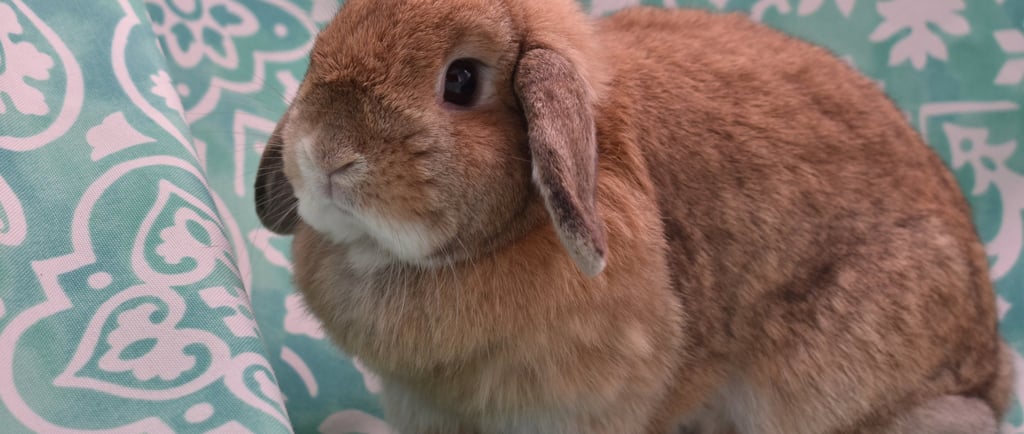Lunging
Why do rabbits lunge? What can be done to stop this behavior?
Amy J.
5/7/20252 min read


Lunging
Your normally happy, playful young doe suddenly flies at you, growling with rage as you open the door to her cage space to say good morning and begin your daily routine of cleaning and feeding her before you begin the day together. Of course, you are taken aback by your bunny’s sudden aggression and wonder what in the world is going on with your normally sweet, playful friend.
What’s going on when your bunny lunges?
As stated in many of our other blog posts, it’s important to remember that your rabbit is a prey animal and his options for self-defense against predators are rather limited. In a rabbit’s world, fleeing from danger and having multiple escape routes is absolutely paramount to safety and survival.
In the scenario mentioned above, the rabbit doe had only one escape route, and a big human hand was reaching at her from it. She went into fight or flight mode and, since flight wasn’t an option, giving a warning that she was ready to fight was the only option available.
Why the sudden need for fight or flight when she had been happy and mellow until this point?
As rabbits mature, their instincts develop more fully, especially as they reach sexual maturity. Adolescent rabbits undergo hormonal changes that can lead to increased agitation, territorial behaviors, and a higher tendency to lunge when feeling threatened or challenged. By the time they reach breeding age, their brains and bodies are full of hormones and awareness of all the dangers and things that could go wrong as they seek to begin caring for young of their own. Every shadow or movement could be a predator waiting to pounce, so their instincts for survival go into overdrive. In these cases, understanding the maturation cycle of rabbits can help in managing their behavior through spaying/neutering. This approach can prevent lunging from becoming a habitual response in stressful situations.
Lunging is largely a behavior seen when rabbits feel cornered and they have no other way to escape. It’s also a way of communicating their need to establish boundaries with their humans, “This is MY space...Keep Out!”
Unfamiliar people or things can serve as potential triggers for lunging behaviors. Rabbits are naturally cautious animals, and they often react negatively to sudden changes in their surroundings. This could include new furniture, loud noises, or the presence of unfamiliar people or pets. Such encounters can provoke a strong response to assert their space or react to perceived threats.
Lunging may also mirror the rabbit’s emotional state. A bunny that lunges frequently may be experiencing heightened stress or anxiety, which can be harmful to its overall well-being. Recognizing that such behaviors are rooted in instinct can help owners respond appropriately, whether by providing a safe space for the rabbit to retreat or by limiting potential triggers in their environment. Gentle and consistent socialization can decrease such reactions, by growing a trusting relationship between the rabbit and its owner.
Although lunging is a fairly common behavior among all rabbits, in general, it should still be heard as your bunny’s cry for help. Something is not right in his world, and he needs your help to fix it.
By recognizing and addressing these common triggers—feeling cornered, encountering unfamiliar stimuli, and navigating hormonal changes—rabbit owners can foster a calmer environment, ultimately resulting in a more content and confident pet bunny.
